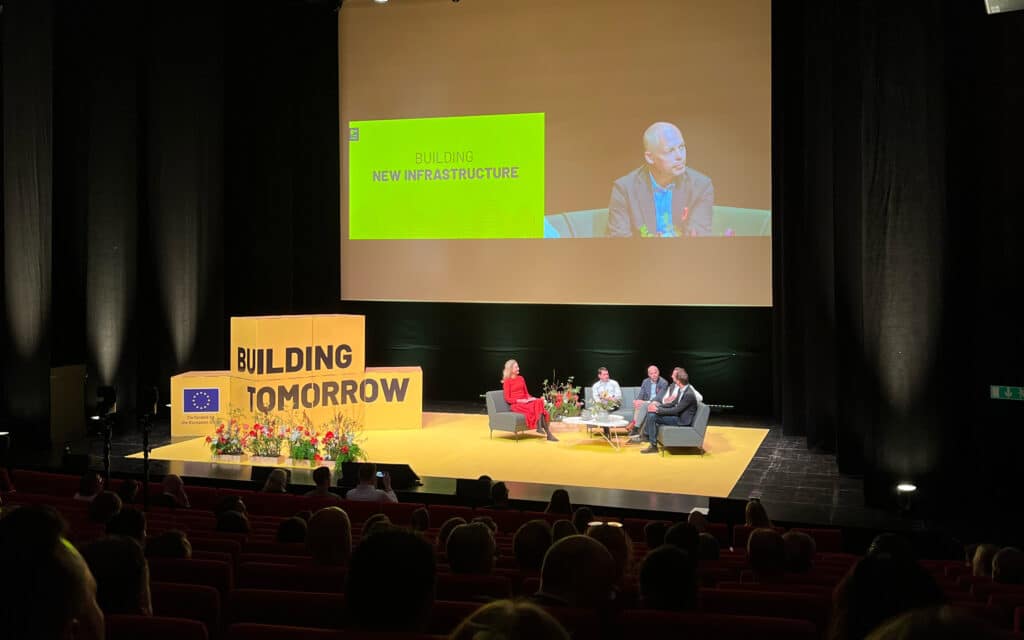Demo North Summit 2024 attracted global players to Norrbotten and Boden to explore future sustainable business opportunities and investments in the region.
Norrbotten and Västerbotten together form one of the world’s most interesting regions due to the ongoing green societal transition. It is therefore not surprising that Demo North Summit 2024, organized by Invest in Norrbotten, attracted about 250 participants from all corners of the world.
This was the third time the conference was held, and this year’s edition had a particular focus on international investors as well as potential suppliers, subcontractors, authorities, and decision-makers.

The purpose of Demo North Summit 2024 was to highlight business opportunities and strategic collaborations that benefit the growth of Norrbotten. Among other things, with examples from Boden, where the company Polar Structure, specializing in sustainable infrastructure and energy solutions, has invested in critical infrastructure together with Boden’s municipality to build a railway track to Boden Industrial Park.
Large parts of Tuesday’s program took place in Boden, where participants experienced the ongoing societal transition firsthand. One of the speakers was Boden Business Park’s business developer, Nils Lindh, who presented what makes Boden’s municipality attractive to investing companies.
– We are in a phase of green societal transition that creates growth and investment opportunities. Boden has Norrbotten’s best business climate, which is good for both the existing business community and for new companies establishing here, he says.
Among the participants was a delegation of 19 people from 9 Irish companies as well as representatives of Enterprise Ireland, a governmental organization that supports and develops Irish companies both nationally and internationally.
– We have a number of high-tech companies that have succeeded in the region and the Nordics. Considering everything that is happening here and that the door for collaborations is wide open, it feels enormously exciting to explore what new opportunities might exist, says Susan Byrne, Senior Market Advisor for Wind, Energy and the Blue Economy at Enterprise Ireland Nordics.
Her colleague Luis Faria, market executive at Enterprise Ireland Nordics, added that although the awareness of the green societal transition is good in Ireland, it is still an eye-opener to be on-site.
– What strikes me is the size of the projects and that it is happening now. We need to learn more about what is required for our companies to be involved because it is clear that they are looking for expertise that exists in Ireland, he says.
Another participant was Corinne Petrisor, Commercial Counsellor at the Canadian Embassy in Stockholm. Canada is on a similar journey as northern Sweden, with various green industrial establishments. Northvolt has announced that they are building a new battery cell facility in the province of Quebec, and H2 Green Steel has indicated that Canada is an attractive market to expand into, not least because of its clean grid and incentives for green investments.
Volkswagen has also chosen to establish its first foreign factory for electric vehicle batteries in Ontario, and Honda has chosen the same province to create a comprehensive supply chain for electric vehicles.

– Canada’s strategy is to prioritize this type of investment. The Government of Canada has committed to achieve 100% zero-emission vehicle sales by 2035 for all new “light duty” vehicles, as announced in its 2030 Emissions Reductions Pla, said Corinne Petrisor.
To achieve this, the Canadian government offers various support mechanisms for green companies, such as a clean technology investment tax credit to cover certain costs within clean technology or critical mineral industries. There are also national and regional funds aimed at companies to reduce the risks associated with the large investments being made to achieve the country’s decarbonization goals.
– I see great potential for increased collaboration between our countries’ companies. This can include two-way trade and investments, joint projects in third markets, innovation and R&D projects through Horizon Europe, and cooperation between our universities, she says and continues:
– I am often struck by the similarities between our two countries, whether it’s about shared values, the same business outlook, our innovation capacity, or simply our geography. We are ready to work with Swedish partners to help promote growth, collaboration, and success for both our countries.